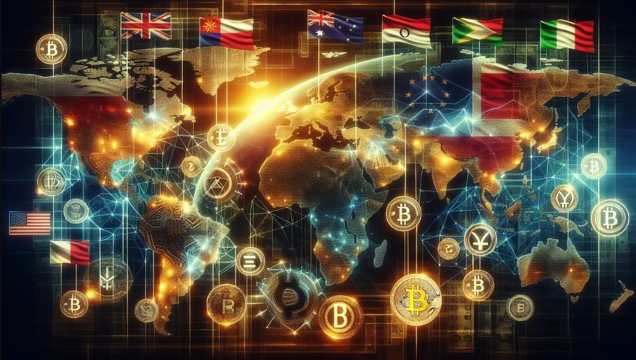
Global markets are experiencing continuous fluctuations due to geopolitical events, which in turn affect various financial assets, particularly cryptocurrencies. Financial circles are questioning the ability of cryptocurrencies to withstand as a safe haven during crises, with the escalation of international conflicts and the imposition of economic sanctions, and how much they are affected by these developments.
Are cryptocurrencies considered a safe haven in times of conflict?
Investors often view gold as a traditional safe haven in times of political and economic turmoil, but cryptocurrencies have been gaining increasing attention in this context. These currencies are characterized by their decentralized nature, making them less susceptible to direct government interventions or banking restrictions.
However, this situation varies depending on the type and intensity of the geopolitical event. In some cases (such as wars or severe sanctions), cryptocurrencies may benefit from capital flight from traditional financial systems, particularly in countries suffering from high inflation or tight financial restrictions.
However, this does not mean that cryptocurrencies are free of risks, as the heavy reliance on digital infrastructure and the internet exposes them to cyberattacks or network interruptions, along with extreme price volatility, which may make them a risky option for some investors.

Realistic analyses from the Ukrainian war to Iranian sanctions
The Russian-Ukrainian war (which broke out in February 2022) is a real test for the cryptocurrency market. During the initial phase of the conflict, there was a noticeable increase in cryptocurrency trading, and some investors turned to Bitcoin and Ethereum as a means to hedge against geopolitical risks.
Some countries and organizations have also used cryptocurrencies to circumvent imposed financial sanctions, highlighting the role of crypto as an alternative financial tool in a complex environment.
In contrast, the United States and the European Union imposed strict sanctions on Iran, prompting some entities within the country to use cryptocurrencies to evade banking restrictions.
Where the step helped in the flow of funds, and maintaining the continuity of foreign trade, but it sparked a debate about the dual role of cryptocurrencies, as both a tool for financial liberation and a tool that could be used in illegal activities.
Challenges and opportunities
Cryptocurrencies face significant regulatory challenges in light of these events, as governments seek to establish rules governing their use, especially amidst concerns about money laundering and terrorism financing. Conversely, this field offers opportunities to rethink the global financial system, making it more resilient and independent from traditional banks.
It is worth noting that geopolitical events affirm that cryptocurrencies are not merely an investment tool, but have become an integral part of modern financial and political dynamics. While they may serve as a refuge at times, they can turn into a tool of economic or strategic pressure at other times.
In summary, geopolitical events directly and indirectly impact the crypto market, between supporting it as an alternative refuge in times of crises, and the challenges imposed by sanctions and wars on its stability and uses.
Therefore, investors and observers must understand these complex dynamics well to assess the risks and opportunities in the rapidly changing world of cryptocurrencies.
#BinanceSquare #BinanceExplorers #CryptoArabic #BinanceArabs #Write2Earrn